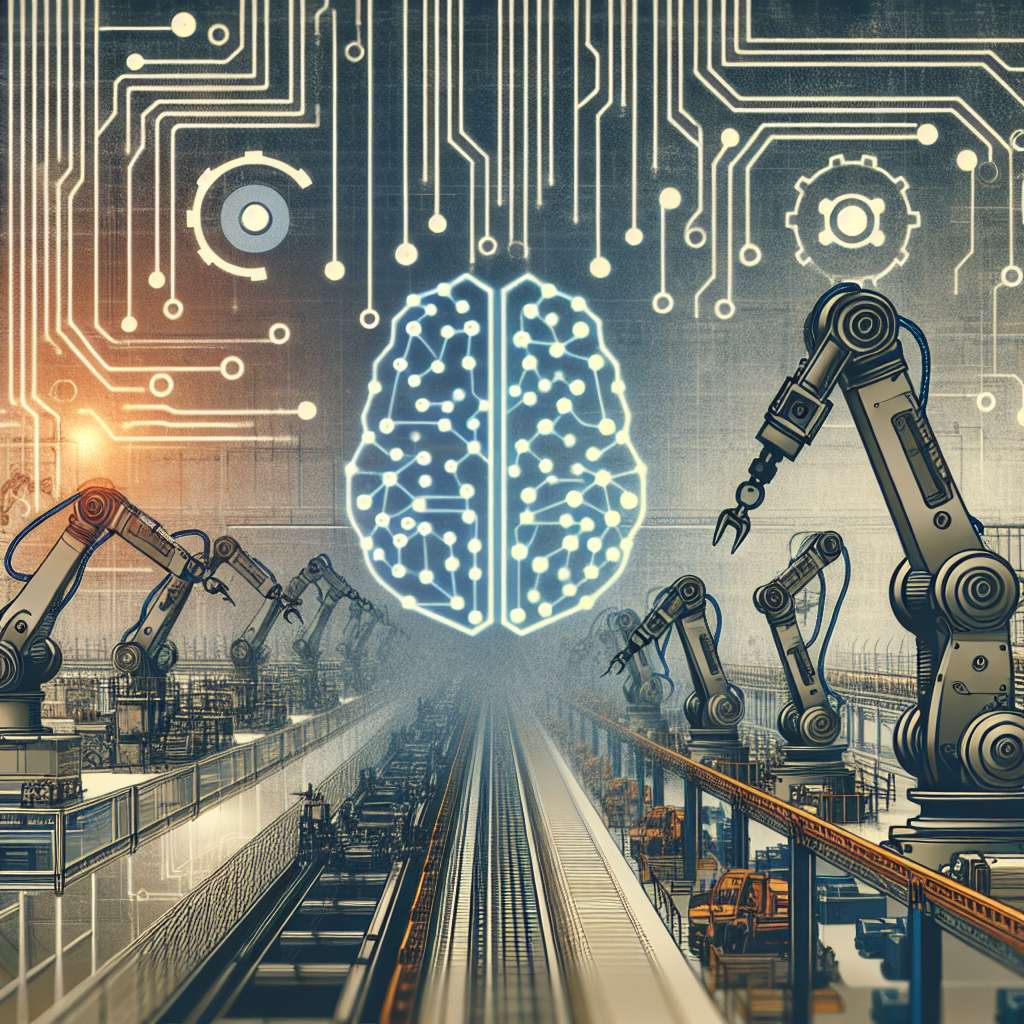Artificial Intelligence (AI) has become a game-changer in various industries, and manufacturing is no exception. The implementation of AI in manufacturing has revolutionized the way products are made, improving efficiency, reducing costs, and increasing productivity. From predictive maintenance to quality control, AI is transforming the manufacturing sector in ways that were previously unimaginable. However, with great benefits come great challenges. In this article, we will explore the benefits and challenges of implementing AI in manufacturing.
Benefits of Implementing AI in Manufacturing:
1. Increased Efficiency: AI can automate and streamline processes in manufacturing, leading to increased efficiency and reduced downtime. By analyzing data in real-time, AI can optimize production schedules, minimize waste, and improve overall operational efficiency.
2. Improved Quality Control: AI can detect defects in products with greater accuracy than human inspectors. By analyzing images, sensors, and other data, AI can identify potential issues early in the production process, ensuring that only high-quality products reach the market.
3. Predictive Maintenance: AI can help manufacturers predict when equipment is likely to fail, allowing for proactive maintenance to prevent costly downtime. By analyzing historical data and real-time sensor data, AI can identify patterns that indicate potential equipment failures before they occur.
4. Supply Chain Optimization: AI can optimize supply chain operations by analyzing data from multiple sources to predict demand, optimize inventory levels, and improve logistics processes. By using AI, manufacturers can reduce lead times, minimize costs, and improve customer satisfaction.
5. Enhanced Product Design: AI can assist in product design by analyzing customer feedback, market trends, and historical data to identify opportunities for innovation and improvement. By using AI-powered design tools, manufacturers can create products that better meet customer needs and preferences.
Challenges of Implementing AI in Manufacturing:
1. Data Quality and Integration: One of the biggest challenges in implementing AI in manufacturing is ensuring the quality and integration of data from multiple sources. Manufacturers must have access to clean, reliable data to train AI models effectively and make accurate predictions.
2. Skilled Workforce: Implementing AI in manufacturing requires a skilled workforce with expertise in data science, machine learning, and AI technologies. Manufacturers may need to invest in training programs to ensure that their employees have the necessary skills to work with AI systems effectively.
3. Cost of Implementation: Implementing AI in manufacturing can be costly, especially for small and medium-sized manufacturers. The cost of acquiring AI technologies, training employees, and integrating AI systems into existing processes can be a barrier for some manufacturers.
4. Security and Privacy Concerns: AI systems in manufacturing can be vulnerable to cyber attacks and data breaches, raising concerns about security and privacy. Manufacturers must implement robust security measures to protect sensitive data and ensure the reliability of AI systems.
5. Resistance to Change: Some employees may be resistant to AI technologies, fearing that automation will replace their jobs. Manufacturers must address these concerns and communicate the benefits of AI to employees to ensure a smooth transition to AI-powered processes.
FAQs about Implementing AI in Manufacturing:
Q: How can AI help manufacturers improve product quality?
A: AI can help manufacturers improve product quality by detecting defects in products with greater accuracy, optimizing production processes, and identifying opportunities for innovation and improvement.
Q: What are the key benefits of implementing AI in manufacturing?
A: The key benefits of implementing AI in manufacturing include increased efficiency, improved quality control, predictive maintenance, supply chain optimization, and enhanced product design.
Q: What are some of the challenges of implementing AI in manufacturing?
A: Some of the challenges of implementing AI in manufacturing include data quality and integration, the need for a skilled workforce, the cost of implementation, security and privacy concerns, and resistance to change.
Q: How can manufacturers address security and privacy concerns related to AI implementation?
A: Manufacturers can address security and privacy concerns by implementing robust security measures, training employees on best practices for data security, and working with trusted partners to ensure the reliability of AI systems.
Q: What steps can manufacturers take to ensure a smooth transition to AI-powered processes?
A: Manufacturers can ensure a smooth transition to AI-powered processes by investing in employee training, communicating the benefits of AI to employees, and involving employees in the implementation process.
In conclusion, implementing AI in manufacturing offers significant benefits, including increased efficiency, improved quality control, predictive maintenance, supply chain optimization, and enhanced product design. However, manufacturers must also address challenges such as data quality and integration, the need for a skilled workforce, the cost of implementation, security and privacy concerns, and resistance to change. By addressing these challenges and leveraging the benefits of AI, manufacturers can revolutionize their operations and stay competitive in an increasingly digital world.

